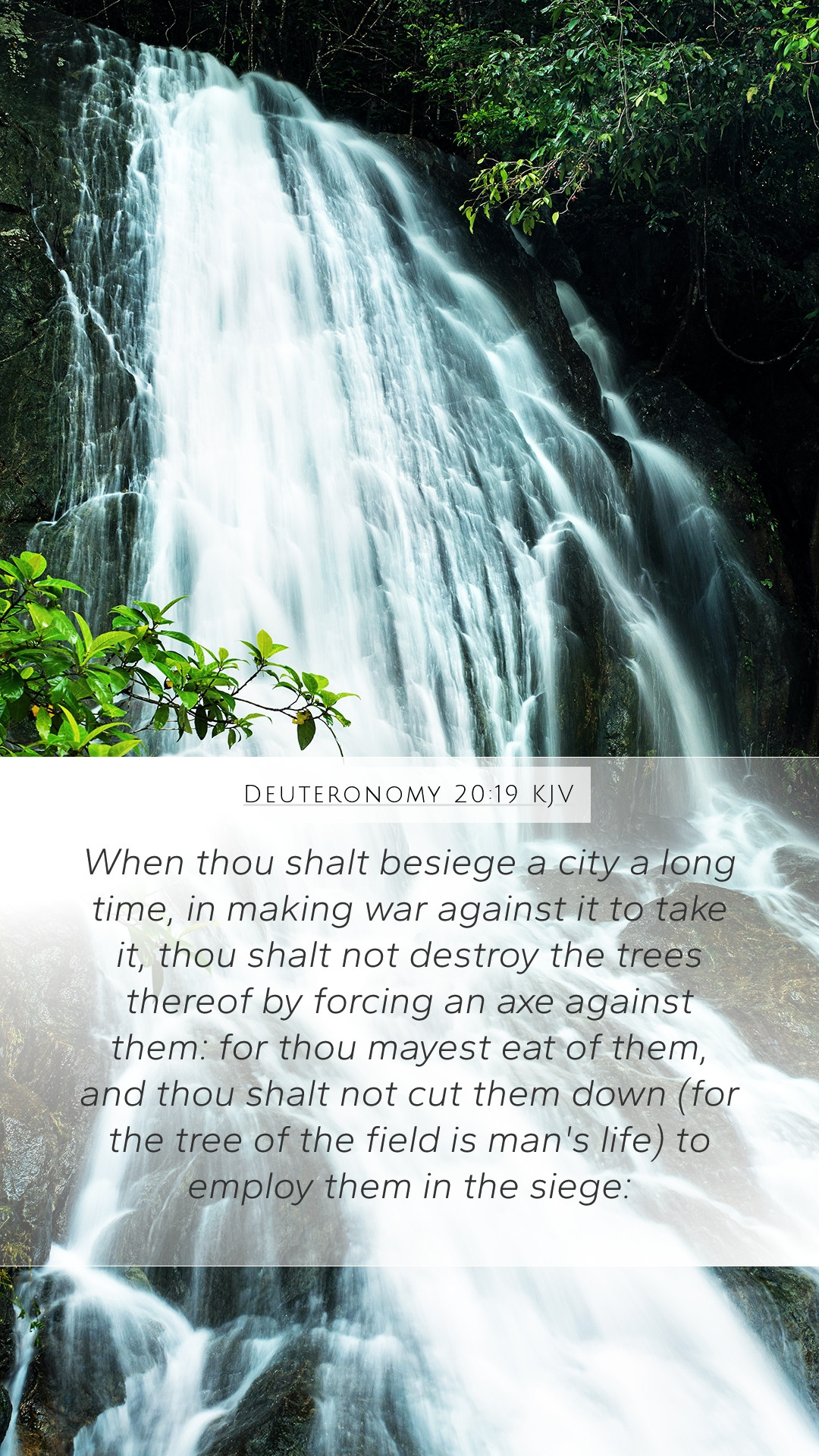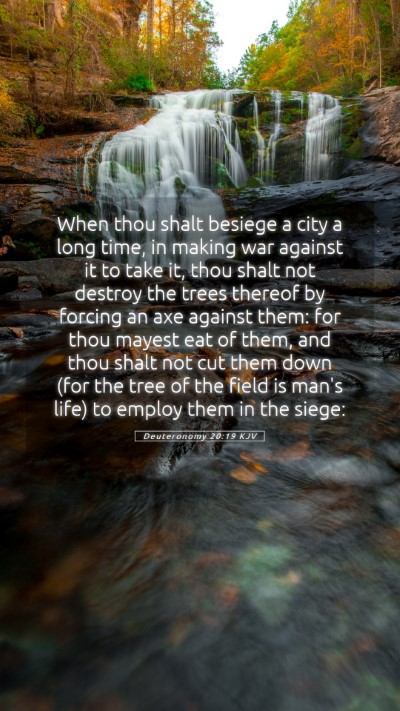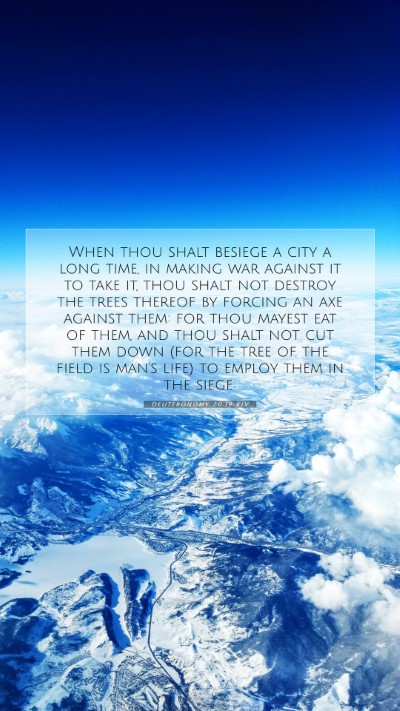Understanding Deuteronomy 20:19: A Comprehensive Bible Verse Commentary
Deuteronomy 20:19 states:
"When you besiege a city for a long time, making war against it in order to take it, you shall not destroy its trees by wielding an axe against them. For you may eat from them, and you shall not cut them down. Are the trees in the field human, that they should be besieged by you?" (ESV)
Overview of the Verse
This verse addresses the ancient Israelites' conduct during warfare, specifically highlighting the prohibition against unnecessary destruction of trees and natural resources. It provides a unique insight into the ethical considerations of warfare in biblical law and reflects a broader commitment to stewardship and sustainability.
Insights from Public Domain Commentaries
Matthew Henry's Commentary
Matthew Henry emphasizes the importance of humanity and justice even during conflict. He notes that depriving an enemy of their resources should not extend to nature unnecessarily. This reflects a God-given stewardship over creation, calling for its protection even in times of war.
Albert Barnes' Notes on the Bible
Albert Barnes comments on the significance of trees in this context, recognizing them as valuable resources that provide sustenance. He suggests that the preservation of trees serves to remind the Israelites of their dependency on God's creation and encourages responsible governance over natural resources.
Adam Clarke's Commentary
Adam Clarke elaborates on the practical implications of this law, connecting it to broader themes of ethics in warfare. He highlights that trees symbolize life and sustainability, arguing that even enemies must not be subjected to wanton destruction. Clarke also asserts that this command would promote a healthier relationship with the land and its resources.
Key Themes and Interpretations
- Stewardship of Creation: The verse underscores the willingness to protect God's creation, advocating for a responsible approach that transcends military objectives.
- Ethics in Warfare: It introduces moral considerations in conflict, advocating for humane treatment even of an enemy's resources.
- Symbolism of Trees: Trees represent life and provision; their preservation highlights the need to respect what God has created.
- Community Welfare: The command reflects a principle that even adversarial conditions should not lead to the suffering of innocent bystanders, like the environment.
Biblical Cross References
- Exodus 23:5: This verse emphasizes the importance of kindness and assistance, even towards enemies.
- Deuteronomy 22:6-7: These verses discuss the protection of animals, furthering the theme of stewardship in the Scriptures.
- Isaiah 24:5: This passage reflects on the consequences of humanity's failure to respect the earth and its resources.
Application of the Verse
Today, Deuteronomy 20:19 serves as a reminder for modern believers regarding the treatment of the environment and sustainable practices. It calls for an understanding that God's creation holds intrinsic value and must be respected irrespective of human conflicts.
Additional Reflections
In the context of Bible study groups, this verse can prompt discussions on environmental ethics and God's intention for humanity to care for the earth. Online Bible study materials can utilize this verse to foster informed discussions about the intersection of faith and environmental responsibility.
Conclusion
Deuteronomy 20:19 is a multifaceted verse that speaks not only to the historical context of warfare but also to contemporary issues regarding environmental stewardship and ethical conduct. Understanding Scripture through this lens can lead to deeper insights into the nature of God's law and our responsibility toward His creation.
Keywords for Further Study
- Bible verse meanings
- Bible verse interpretations
- Bible verse understanding
- Bible verse explanations
- Bible study insights


